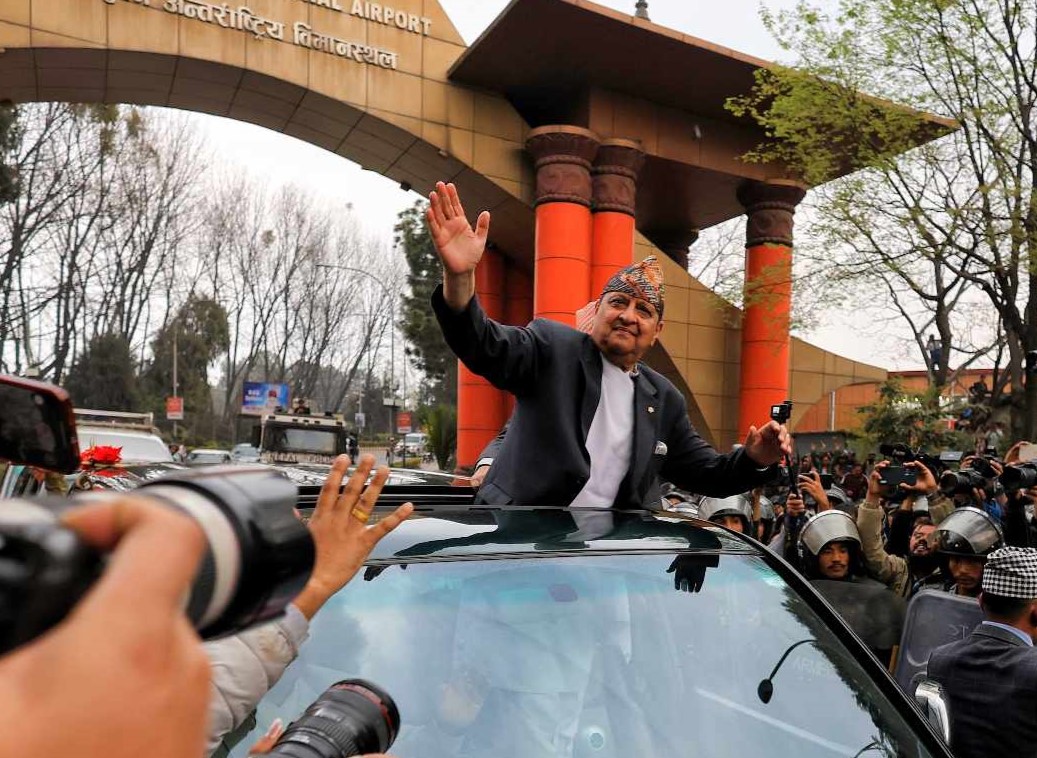24 March 2025
Statement by eight citizens
Gyanendra Shah, the former king, has become politically active with the aim of reinstating monarchy in Nepal, which we the undersigned regard as being against the Constitution, aimed at sowing lawlessness for the benefit of opportunists, and carried out with the backing of religious fundamentalists in India.
The Constitution of Nepal (2015) is the product of a political and social contract among national communities, adopted by an elected Constituent Assembly. The three foundational pillars of the Constitution are democratic republic, federalism and secularism. Undermining any one of these pillars will destroy the delicate balance that the document represents, leading to confusion, political instability and a faltering economy. Nepali society will take another decade to recover from the resulting anarchy, and there will be a further rise in the number of citizens leaving the country for opportunities elsewhere.
Gyanendra Shah’s descent into political activism subverts the nation-building efforts of his own ancestors and carries the danger of weakening the country before its neighbours and the world. The royalist flank is willing to endanger the country politically and geopolitically at a time when Nepal’s foreign affairs and neighbourly relations are at their most vulnerable.
Along the way, the ex-king’s campaign has attracted ultra-leftists, rightists and opportunists without ideology. Lacking a significant following among the people, their hope is to reap some advantages from the chaos that would follow the collapse of constitutionalism.
The public knows well that Gyanendra Shah has been lobbying India’s political establishment to get back to the throne in Nepal. This is the same political class of New Delhi which seeks constantly to intervene in the affairs of India’s smaller neighbours, and which outdid itself by blockading Nepal for nearly half a year in 2015.
It is common knowledge that the political leadership in New Delhi is unhappy with the Constitution of Nepal (2015), and seeks to benefit electorally in India by trying to engineer an abandonment of secularism in Nepal and the establishment of a ‘Hindu state’.
Meanwhile, BJP Chief Minister Adityanath of Uttar Pradesh, host to many visits by Gyanendra to Lucknow, has publicly expressed his desire for Nepal to revert to monarchy.
Any move to return to monarchy with the support of Hindutva fundamentalists of India weakens Nepal’s sovereignty and independence. It is ironic that it was Gyanendra’s tenth ancestor, Prithvi Narayan Shah, who established one of the oldest nation-states in the world, saving Nepal from the grasp of the imperial powers of the north and south. Whereas, hand-in-glove with India’s ultra-conservatives, the present-day descendant seeks to weaken the country and its people for personal gain by bringing down the ten-year-old Constitution.
To recall, it is the same Gyanendra Shah who, in 2005, using the army, derailed democracy and assumed direct autocratic rule. Seeking to emulate his father Mahendra’s coup d’état of 1960, he abolished Parliament, jailed hundreds of political leaders and civil society dissenters, and became chairman of the royal regime that lasted a little over a year until it was brought down by the People’s Movement.
The ex-king has never spoken on behalf of the people with regard to the 2015 blockade by New Delhi or the territorial dispute that has cropped up, yet he wants the throne back. As a person with authoritarian instincts who has already shown his hand, and never indicated remorse for his 2005 takeover, Gyanendra’s attaining the throne would take the country down the same path of royal autocracy. From being the most open society in Southasia, Nepal will revert to being the constricted, undemocratic polity of the 30-year Panchayat era (1960-90), and of Gyanendra’s direct rule (2005-06).
If the former king had resisted the temptation to play politics and understood his place, the Nepali public might have been agreeable to providing the clan of the country’s founding king with a dignified place in national life, outside of the Constitution. Gyanendra’s latest bout of political activism, however, has ended that prospect.
Everyone in public life must accept the fact that the Parliament is a child of the republican Constitution, which can be amended only through parliamentary process and a two-thirds majority. The Parliament is not the place to challenge the Constitution at the whim of a handful of MPs, and any unconstitutional language challenging the fundamental principles of the Constitution must be deleted from the parliamentary record.
For sure, the democratic politics of today is severely weakened with corruption escalating among politicians and bureaucrats, governance weakened due to the political division of spoils, business people preferring to be brokers and touts, and civic leaders and intellectuals remaining mute spectators. Such trends also exist in other societies and must be resisted, but we find the narrative of reviving kingship objectionable, which would have the effect of blocking the path of fresh leadership in both old and new political parties.
The ex-king needs to understand that, over the course of the past decade, Nepal has firmly established itself as a federal, secular republic, and the remaining challenge is to provide good governance and prosperity under the Constitution. The ex-king is one who, once before, grabbed power under the excuse of poor performance of political parties and carried out unsuccessful direct rule. All must understand the designs of Gyanendra Shah and his promoters to misuse the freedom provided by our democratic system to try and spread conflict and anarchy.
Signatories:
Mohna Ansari, Kanak Mani Dixit, Rajan Kuikel, Reeta Pariyar, Charan Prasai, Sushil Pyakurel, Dinesh Tripathi, Hira Vishwakarma
